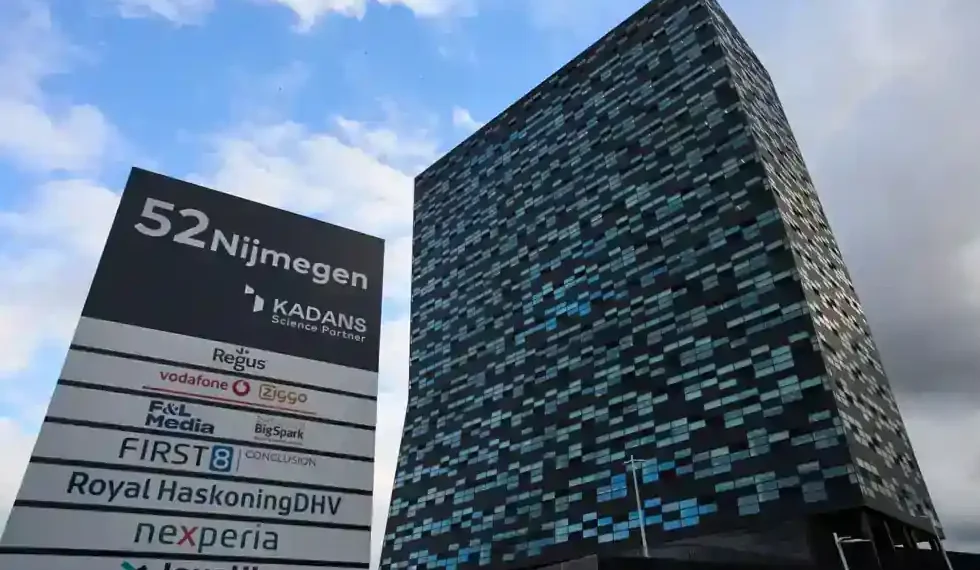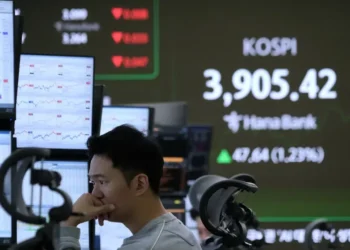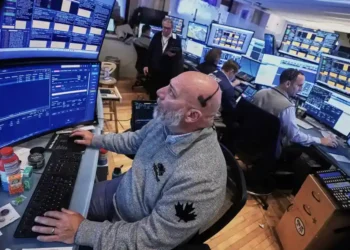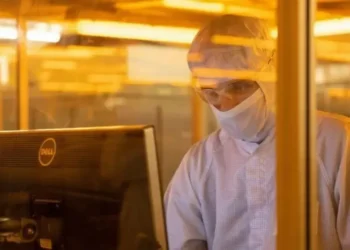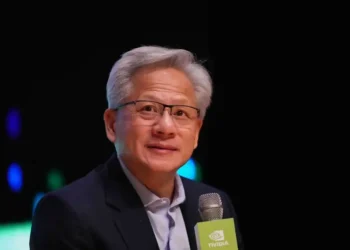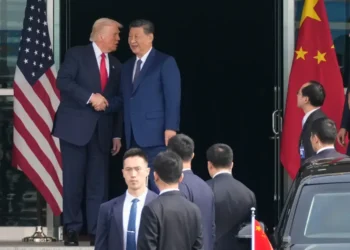A global shortage of automotive semiconductors has deepened following a political and legal battle over Nexperia, a Dutch chipmaker owned by China’s Wingtech Technology. The dispute, which has drawn in Washington, Beijing, and major car manufacturers, briefly paralyzed production lines and exposed how fragile the global chip supply chain remains.
A Sudden Intervention by the Netherlands
The crisis began in mid-October when the Dutch government quietly invoked a World War II-era emergency law to seize effective control of Nexperia, citing “national security concerns.” The Ministry of Economic Affairs said it acted to prevent the potential loss of sensitive technological expertise vital to Europe’s industrial base.
Officials accused Nexperia of “serious governance shortcomings” and argued that allowing its Chinese parent company, Wingtech Technology, to maintain control posed unacceptable security risks. A Dutch court subsequently approved the government’s request to remove Nexperia’s Chinese chief executive, Zhang Xuezheng, following U.S. pressure that warned of potential trade restrictions if he remained in place.
What Nexperia Does — and Why It Matters
Nexperia specializes in basic yet essential semiconductor components such as switches and logic chips. While these parts are less advanced than microprocessors, they are indispensable for modern vehicles. Carmakers rely on Nexperia chips for functions ranging from electric vehicle battery systems to adaptive headlights and anti-lock brakes.
Headquartered in Nijmegen, Netherlands, Nexperia was originally spun off from Philips Semiconductors two decades ago. It was acquired by China’s Wingtech Technology in 2018 for roughly $3.6 billion. The company operates wafer fabrication plants in the Netherlands, Germany, and the U.K., with major assembly centers in China’s Guangdong province, the Philippines, and Malaysia. Around 70% of Nexperia’s final production capacity comes from its China-based facilities.
Caught Between Superpowers
The Nexperia dispute has become emblematic of Europe’s precarious position between the United States and China in their ongoing tech rivalry. Washington placed Wingtech on its “entity list” in late 2024, imposing export restrictions over national security concerns. That designation was expanded in September to include Nexperia itself, with the U.S. urging its allies to adopt similar measures.
Beijing responded swiftly after the Netherlands’ intervention, blocking the export of Nexperia chips from its Dongguan factory and accusing Dutch authorities of “creating turmoil and chaos” in global supply chains. The move disrupted shipments to automakers worldwide, compounding the semiconductor shortage that has dogged the industry since the pandemic.
Signs of easing emerged after U.S. President Donald Trump and Chinese President Xi Jinping held a high-level meeting last month, where both sides agreed to a temporary easing of trade tensions. The White House said China would resume exports of Nexperia chips as part of the de-escalation effort.
Internal Dispute Deepens the Crisis
Despite the diplomatic thaw, tensions persisted within Nexperia itself. The company’s Chinese subsidiary accused headquarters of suspending wafer shipments necessary for chip manufacturing, claiming it was being “unfairly constrained.” In response, Nexperia’s main office in the Netherlands alleged that the Chinese branch had “ignored lawful instructions” and failed to pay for materials.
In a strongly worded statement, the company warned that it could not guarantee the quality of chips produced in China after October 13. Analysts said the internal rift risked further delays in restoring global deliveries, even as Chinese officials pledged to simplify export procedures.
Automakers Struggle to Cope
The disruption has rippled across the global automotive industry, forcing several manufacturers to scale back production or tap emergency chip reserves. Honda was among the hardest hit, temporarily halting operations at its Celaya, Mexico, plant, which produces up to 200,000 HR-V crossovers annually for the North American market.
Ford CEO Jim Farley described the situation as “an industrywide issue,” warning that a resolution was urgently needed to prevent fourth-quarter production losses. General Motors CEO Mary Barra said her company had teams “working around the clock with our supply chain partners to minimize possible disruptions.”
In Japan, Nissan Executive Vice President Ivan Espinosa said the automaker was setting aside ¥25 billion (about $163 million) to offset supply risks tied to the Nexperia dispute. Mercedes-Benz CEO Ola Källenius said the company was “scurrying around the world” to find alternative suppliers, while the European Automobile Manufacturers’ Association (ACEA) cautioned that members including BMW, Renault, Volkswagen, and Volvo were relying on dwindling chip inventories.
According to analysts at S&P Global Mobility, Nexperia accounts for about 5% of the global automotive discrete semiconductor market by revenue — but its chips make up a far larger share of total units used across vehicle systems. “Replacing Nexperia’s components at scale in the short term will be difficult,” the firm said, noting that even minor supply gaps can trigger major production delays.
Hopes for Resolution Grow
Efforts to resolve the crisis gained momentum over the weekend. European Union Trade Commissioner Maroš Šefčovič said “encouraging progress” had been made after China’s Commerce Ministry agreed to “further simplify” export procedures for Nexperia chips. The ministry also confirmed that Dutch representatives would travel to Beijing for consultations.
However, Chinese officials cautioned that the Netherlands must still take “concrete actions” to stabilize the supply chain. Dutch Economic Affairs Minister Vincent Karremans said he remained optimistic, expressing confidence that “the supply of chips from China to Europe and the rest of the world will reach Nexperia’s customers over the coming days.”
Honda later confirmed that Nexperia’s shipments from China had resumed. Executive Vice President Noriya Kaihara told reporters the automaker expected to restart production in Mexico during the week of November 21.
A Wake-Up Call for Europe’s Tech Sovereignty
Analysts say the Nexperia episode underscores Europe’s growing dependence on foreign technology and highlights the urgency of building secure domestic semiconductor capacity. The EU has committed billions under its “Chips Act” to strengthen production and reduce exposure to geopolitical risks.
For now, automakers remain in damage-control mode, bracing for potential aftershocks in the global supply chain. While shipments may be resuming, the standoff between The Hague, Beijing, and Washington has offered a sobering reminder of how quickly politics can disrupt the world’s most complex industrial networks.
This article was rewritten by JournosNews.com based on verified reporting from trusted sources. The content has been independently reviewed, fact-checked, and edited for accuracy, neutrality, tone, and global readability in accordance with Google News and AdSense standards.
All opinions, quotes, or statements from contributors, experts, or sourced organizations do not necessarily reflect the views of JournosNews.com. JournosNews.com maintains full editorial independence from any external funders, sponsors, or organizations.
Stay informed with JournosNews.com — your trusted source for verified global reporting and in-depth analysis. Follow us on Google News, BlueSky, and X for real-time updates.
